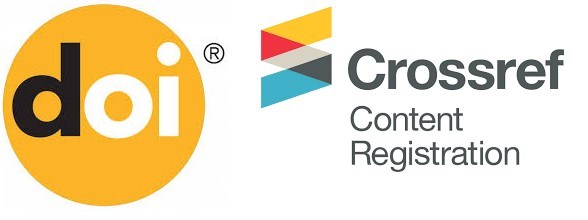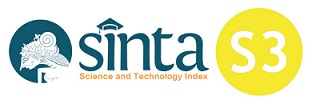Kemasan Pembelajaran Bahasa Arab Berbasis Teori Antropolinguistik Modern
DOI:
https://doi.org/10.32699/liar.v3i2.985Keywords:
Learning Arabic, Modern Anthropolinguistic TheoryAbstract
Some Arabic learning at this time does not pay close attention to the study of Arabic culture. Learn in class only while learning theoretically calm language itself. Meanwhile, discussions about culture in learning are carried out in important ways. This second thing can be done so that it must be done by going hand in hand. Everything that is found in language contains original culture, and so culture is one that language cannot make.
Macrolinguistic has become one of the scientific trends in studying the issue of learning Arabic in Indonesia. One of that dialogues in applied linguistics is anthropolinguistics. That scientific interdiscipline is the result of integration between culture and language. A significant relationship between language and culture makes academics interested in formulating the framework, so that it can be used as a basis for language studies through culture or cultural studies through language. In the modern era, anthropolinguistics has three theories, namely performance, indexicality, and participation. This paper examines how anthropolinguistic theory plays a role in learning Arabic in Indonesia, especially with regard to core competencies in it. This study uses a literature paradigm that is operationally obtained by author from books and articles that have relevance to the topic of discussion. Furthermore, the library data will be dialogue by the author systematically, objectively, and comprehensively. Analysis of the literature that has been done produce a synthesis that learning Arabic in the perspective of modern antropolinguis should consist of the following competencies, namely the grammatical competence, communicative competence and pragmatic, and Arabic language skills. From this theoretical study of anthropolinguistic learning based Arabic, it can be synthesized that the anthropolinguistic theory in Arabic learning has implications for its hard core in the learning process which cannot be denied at all. The hard core is related to the competencies that must be presented by an Arabic learner, especially in Indonesia, namely grammatical competence, communicative and pragmatic competence, and Arabic language skills.
References
Nosowicz, Jan Franciszek and Joanna Szerszunowicz. (2015). Preliminary Remarks On The Interdiciplinary Nature Of Antrhopolinguistics. Journal: Lingusitics and Literature Studies, Vol. 3, No. 6. 289-295.
Kadarisman, Effendi. (2010). Mengurai Bahasa Menyibak Budaya“Bunga Rampai Linguistik, Puitika, dan Pengajaran Bahasa”. Malang: UIN Maliki Press
Nikelas, Syahwin. (1998). Pengantar Linguistik Untuk Guru Bahasa. Jakarta: P2LPTK
Davies, Alan. (2007). An Introduction To Applied Linguistic “From Practice To Theory”. London: Edinburgh University Press
Sibarani, Robert. (2015). Pendekatan Antropolinguistik Terhadap Kajian Tradisi Lisan. 2015. Jurnal: Retorika, Vol. 1, No. 1. 1-17.
Mestika, Zes. (2014). Metode Penelitian Kepustakaan. Jakarta: Yayasan Bogor Indonesia
Faisal, Sanapiah. (1982). Metodologi Penelitian Pendidikan. 1982. Surabaya: Usaha Nasional
Duranti, Alessandro. (1997). Linguistic Anthropology. New York: Chambridge University Press
Sibarani, Robert. (2004). Antropolinguistik “Antropologi Linguistik; Linguistik Antropologi”. 2004. Medan: Poda
Canale, Michael dan Merrill Swain. (1980). Theoritical Bases Of Communicative Approaches To Second Language Teaching and Testing. Oxford: Oxford University Press.
Cummings, Louise. (2007). Pragmatik ‘Sebuah Perspektif Multidisipliner’ terj. Eti Setiawi, dkk. 2007. Yogyakarta: Pustaka Pelajar
Pebriawati, Tri Wahyuni. (2016). Metafora Cinta Dalam Risalah ‘Tauq al-Hamamah’ tesis. Yogyakarta: FITK UIN Sunan Kalijaga.
Muradi, Ahmad. (2014). Pendekatan KomunikatiF Dalam Pembelajaran Bahasa Arab. Jurnal: Arabiyat, Vol. 1, No. 1. 29-48.
Nuha, Ulin. (2012). Metodologi Super Efektif Pembelajaran Bahasa Arab. Yogyakarta: Diva Press
Fachrudin, Aziz Anwar. (2017). Pengantar Sejarah dan Mazhab Linguistik Arab. Sidoarjo: Lisan Arabi
Asrori, Mohammad. (2013). Pengembangan Kurikulum Bahasa Arab di Pesantren. Malang: UIN Maliki Press
Wahab, Muhbib Abdul. (2014). Peran Bahasa Arab dalam Pengembangan Ilmu dan Peradaban Islam. Jurnal: Arabiyat, Vol. 1, No. 1. 1-20.
Muhajir. (2017). Arah Baru Pengajaran Bahasa Arab ‘Filsafat Bahasa, Metode dan Pengembangan Kurikulum’. Yogyakarta: FITK UIN Sunan Kalijaga
Mujib,Fathul. (2010). Rekonstruksi Pendidikan Bahasa Arab ‘Dari Pendekatan Konvensional Ke Integratif Humanis’. Yogyakarta: Bintang Pustaka Abadi.
Mujib, Muhbib Abdul. (2015). Pembelajaran Bahasa Arab Di Era Posmetode. Jurnal: Arabiyat Vol. 2, No. 1. 59-74
Hermawan, Acep. (2018). Pembelajaran Keterampilan Berbahasa Arab ‘Dengan Pendekatan Komunikatif-Interaktif’. Bandung: Alfabeta
Maksudin. (2018). Pengembangan Kurikulum Pembelajaran Bahasa Arab ‘Teori dan Praktik’. Yogyakarta: FITK UIN Sunan Kalijaga.
Downloads
Published
Issue
Section
License
Authors who publish with this journal agree to the following terms:
a. Authors retain copyright and grant the journal right of first publication with the work simultaneously licensed under a Creative Commons Attribution-ShareAlike 4.0 International License. that allows others to share the work with an acknowledgement of the work's authorship and initial publication in this journal.
b. Authors are able to enter into separate, additional contractual arrangements for the non-exclusive distribution of the journal's published version of the work (e.g., post it to an institutional repository or publish it in a book), with an acknowledgement of its initial publication in this journal.
c. Authors are permitted and encouraged to post their work online (e.g., in institutional repositories or on their website) prior to and during the submission process, as it can lead to productive exchanges, as well as earlier and greater citation of published work (See The Effect of Open Access).












